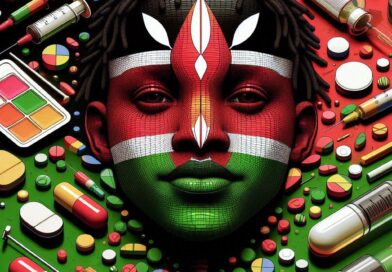South Africa’s HIV Treatment Programme: A Testament to Resilience
South Africa’s human immunodeficiency virus (HIV) treatment programme is an outstanding example of a state-run system that functions effectively. This programme, possibly the world’s largest public sector chronic medication initiative for a single disease, has been a lifeline for millions. Nearly 5.8 million of the 7.8 million HIV-positive individuals in South Africa receive antiretroviral treatment, according to the Thembisa HIV model, with the majority obtaining their medication from the public health system. This is an impressive feat that has reaped substantial public health benefits.
The Impact of Antiretroviral Treatment
The introduction of antiretroviral treatment in 2004 marked a turning point in South Africa’s battle against HIV. Despite initial resistance from the then President Thabo Mbeki, who disputed the science of HIV, the government eventually began rolling out antiretrovirals. This decision, driven by pressure from activists, doctors, and patients, led to a gradual reversal in the decline of life expectancy. Today, life expectancy stands at 64 years, a significant improvement from the 54 years recorded in 2004 at the height of the HIV crisis.
The Economic Value of the HIV Treatment Programme
The government spends approximately R20 billion annually on antiretrovirals, accounting for less than 10% of state health expenditure. This investment has proven to be highly effective, with every $1 spent on the HIV response yielding a $7 return on investment, according to Economist Impact. Antiretroviral treatment is widely available in most of the country’s public sector clinics, often through a pick-up point service that allows patients to receive treatment closer to home.
The Road Ahead
While significant progress has been made, challenges remain. High rates of treatment interruption and difficulty re-engaging people after they have stopped taking treatment are major barriers to reaching the United Nations’ 95/95/95 targets to end HIV as an epidemic. These targets aim for 95% of people with HIV to be diagnosed, 95% of those diagnosed to be on treatment, and 95% of those on treatment to be virally suppressed.
The Implications of Budget Cuts
The National Treasury’s recent proposals have sparked worries about the South Africa’s HIV treatment programme’s future. They suggested a R1 billion decrease to HIV funding in November. They saw the lower price of antiretroviral treatment not as a chance to increase treatment coverage, but as an opportunity for cost-containment. The suggested cut aligns with an extra 11.5% reduction to the already insufficient HIV/AIDS (Life Skills Education) Grant. This grant aids the government’s HIV prevention strategy. It gives learners complete sex education and access to sexual and reproductive health services. So, the potential cuts could affect both the treatment and prevention of HIV. This raises questions about the impact on those affected, especially women and vulnerable groups.
The Need for Strategic Investment
These proposed cuts highlight the critical need for strategic investment in the HIV treatment programme. A report from Joint United Nations Programme on HIV/AIDS (UNAIDS) attributes the saving of millions of lives to HIV funding. It also credits this funding with the strengthening of public health systems in affected countries, such as South Africa. Despite these successes, the report stresses the need for greater investment to eradicate the HIV epidemic.
Moreover, with full funding for the HIV response, South Africa could drastically reduce new infections. Specifically, we could see a 65% reduction by 2030. This would prevent an additional 1.35 million new HIV infections. Therefore, it’s clear that strategic investment is not just beneficial, but crucial.




